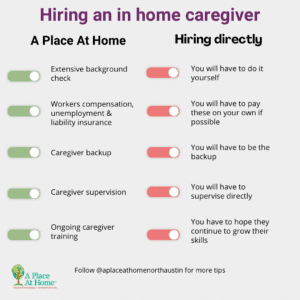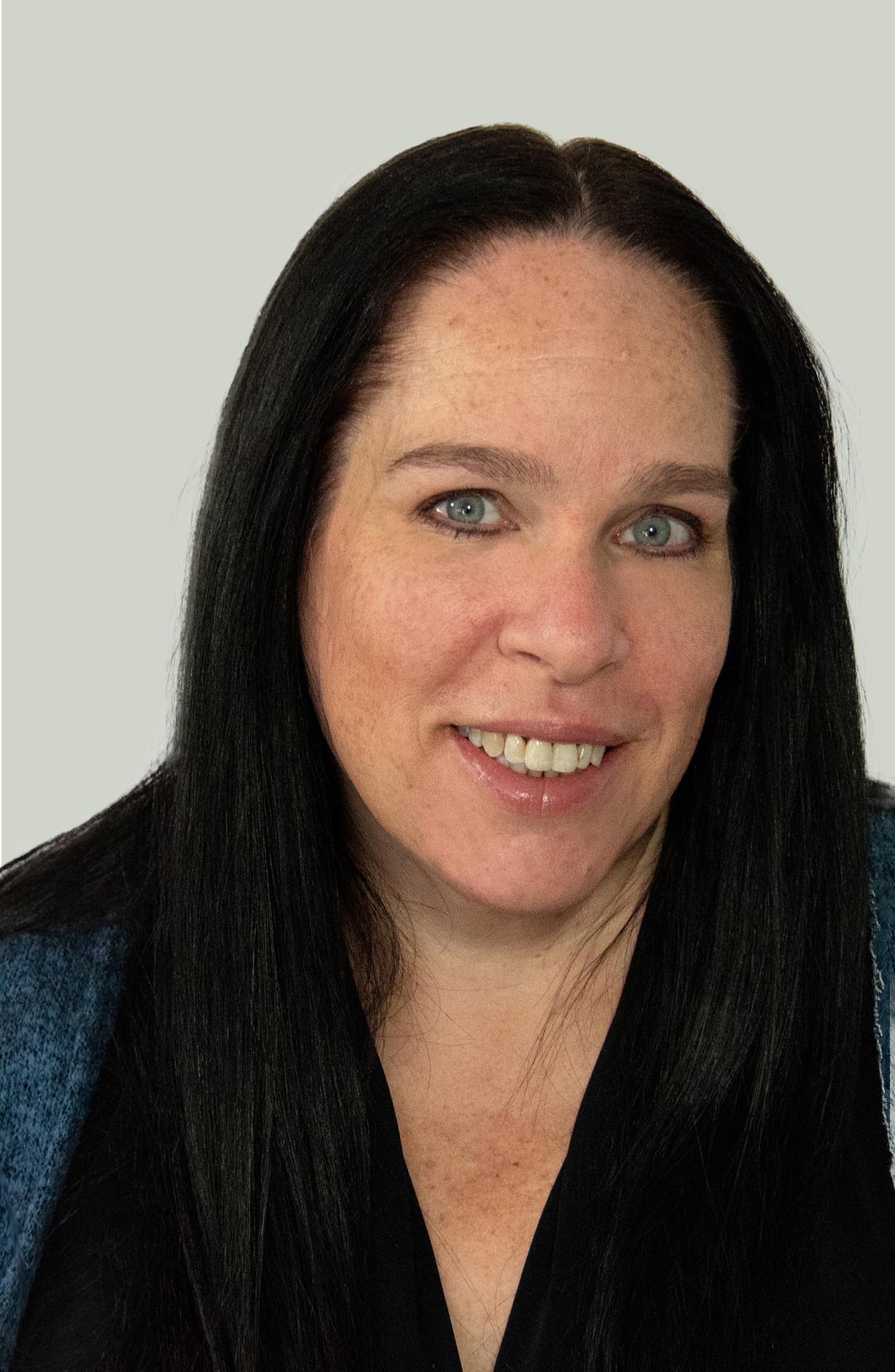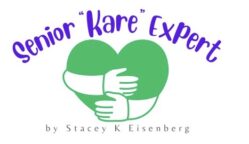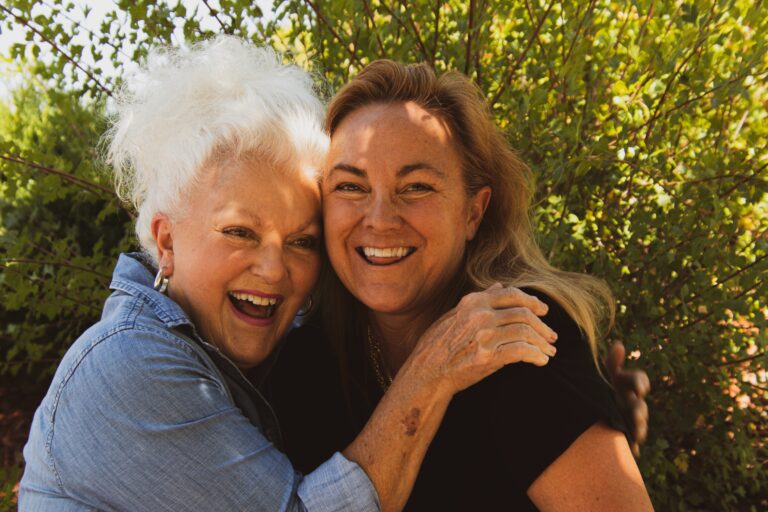Today, we’re tackling a topic close to our hearts – finding the perfect in-home care agency. Whether you’re doing this for a loved one or planning ahead, knowing what to ask and what to look for can make all the difference. So, let’s roll up our sleeves and get into it, shall we?
Understanding In-Home Care
Before diving into the how-tos, let’s understand what in-home care is all about. It’s more than just assistance; it’s about enriching the lives of our seniors while they enjoy the comfort of their own homes. From personal care to medication management and companionship, in-home care covers a spectrum of services tailored to individual needs.
First of all, in-home care is not exclusively for seniors. While it’s often associated with elderly care, in-home care services cater to a wide range of individuals who need assistance. Let’s break this down:
- People with Disabilities: Individuals of any age with physical or intellectual disabilities often benefit from in-home care services. These services can include assistance with daily activities, mobility support, and personalized care plans to enhance their quality of life.
- Chronic Illnesses: People living with chronic illnesses, such as multiple sclerosis, cancer, or heart disease, may require in-home care to manage their condition and carry out day-to-day tasks.
- Post-Surgery or Post Rehab Recovery: In-home care is also sought by those recovering from surgeries or major medical procedures. Professional caregivers can aid in rehabilitation and ensure a safe recovery process at home.
- Mental Health Support: Individuals dealing with mental health issues like depression or anxiety may also opt for in-home care services for support and companionship.
- Temporary Situations: Even people who are generally independent might need in-home care temporarily, like during recovery from an injury or illness.
In summary, in-home care is a versatile service that can be tailored to meet the needs of a broad spectrum of individuals, not just seniors. Whether it’s for long-term support or short-term assistance, in-home care plays a vital role in enhancing the quality of life and independence of those needing extra help in their daily lives.
Why Shouldn’t A Family Member Just Do It
Deciding to hire a caregiver rather than becoming one yourself is a choice that preserves the precious dynamics of family relationships. When family members step into the role of primary caregivers, the lines between loved one and care provider can blur, often leading to emotional strain and even burnout. It’s essential for families to remain just that – families.
By opting for a professional caregiver, you not only ensure that your loved one receives expert, tailored care but also alleviate the stress and exhaustion that often accompanies caregiving. Professional agencies provide caregivers who are not only trained and experienced but also have the resources and support needed to handle various situations effectively. This arrangement offers an invaluable peace of mind, knowing that your family member is in capable hands, allowing you to focus on nurturing your relationship without the added pressure of caregiving responsibilities. Ultimately, finding the right agency and caregiver creates a supportive environment where the emotional well-being of both the senior and their family is prioritized.
Hiring direct versus an agency
 Hiring an agency for caregiving services, as opposed to directly hiring an individual caregiver, comes with several substantial benefits that are important to consider. Firstly, when you hire through an agency, they handle all the tax-related paperwork and legalities, which can be quite complex, especially when it comes to employment taxes, and worker classification. This takes a significant administrative burden off your shoulders.
Hiring an agency for caregiving services, as opposed to directly hiring an individual caregiver, comes with several substantial benefits that are important to consider. Firstly, when you hire through an agency, they handle all the tax-related paperwork and legalities, which can be quite complex, especially when it comes to employment taxes, and worker classification. This takes a significant administrative burden off your shoulders.
Additionally, agencies typically provide comprehensive insurance coverage, including liability and worker’s compensation, which protects both you and the caregiver in case of any unforeseen incidents. Another major advantage is the availability of backup caregivers. Agencies usually have a pool of qualified staff, ensuring that there’s always a substitute available if your regular caregiver is unable to work due to illness or other reasons.
Furthermore, agencies offer supervision and ongoing training for their caregivers. This means the caregivers are regularly updated on best practices and new caregiving techniques, ensuring a higher standard of care for your loved one. By contrast, managing these aspects can be challenging and time-consuming when hiring directly. Thus, while direct hiring might seem more straightforward initially, agencies provide a level of convenience, security, and professional oversight that is invaluable in the caregiving context.
Crafting Your Questions For Evaluating Agencies
When you start your search, arm yourself with the right questions:
Caregiving Services Provided
-
- It’s vital to ask about the full range of services the agency offers. This could include personal care with Activities of Daily Living also called ADLs (like bathing, dressing), non-medical care, meal preparation, housekeeping, and companionship. You will also want to be sure that they can provide caregiver shifts when it is most needed. You may not need someone to help with daytime housework, but you may need someone to be there overnight to help with bedtime transfers, toileting, etc. Match these services with your loved one’s specific needs. For instance, if your loved one struggles with mobility, ensure the agency has experience and resources to assist in that area. The goal is to find an agency that can cater to both current and potential future needs, creating a comfortable and supportive environment for your loved one. Many agencies will list an expansive scope of services on their website or Google Maps business listing. Make sure to ask the agency if they specialize in the specific service vou need.
Caregiver Qualifications
-
- The qualifications and training of caregivers are the backbone of quality in-home care. Inquire about their educational background, certifications (like CPR and first-aid), and any specialized training, especially if your loved one has specific medical conditions like Alzheimer’s or diabetes. The best caregivers blend professional skills with empathy and compassion, bringing both skilled hands and warm hearts to their work. The qualifications your specific caregiver has will depend on the needs of your loved one.
Personal Assistance Services and Companionship
Basic Qualifications:
-
-
- Caregivers offering personal assistance and companionship typically do not require medical training. Their primary role is to assist with daily living activities such as meal preparation, light housekeeping, running errands, and providing companionship.
- They often possess skills like effective communication, patience, and a compassionate nature. Some may have certifications in first aid and CPR.
-
State Variations:
-
-
- In many states, these caregivers are not required to have a formal certification. However, some states might require them to register with a state agency or complete a certain number of training hours in areas like safety and emergency procedures, understanding special needs of the elderly, and personal care skills.
-
Certified Nursing Assistants (CNAs)
Advanced Qualifications:
-
-
- CNAs are trained professionals who have completed a state-approved education program and have passed a competency exam. They are qualified to provide not only personal care but also basic medical assistance.
- Their training includes basic nursing skills, anatomy and physiology, nutrition, infection control, and hands-on clinical experiences.
-
State-Specific Requirements:
-
-
- The scope of practice for CNAs can vary by state. Some states have expanded roles for CNAs, allowing them to perform additional tasks such as administering medication, under supervision.
- CNAs must be licensed in the state where they work, and they are required to complete continuing education units to maintain their certification.
-
Impact of State Regulations
-
-
- The state regulations play a crucial role in defining the scope of practice for caregivers. For instance, in some states, caregivers offering personal assistance may be allowed to perform certain health-related tasks under specific conditions, while in other states, these tasks might be strictly reserved for licensed professionals like CNAs.
- It’s also worth noting that the regulatory environment is subject to change, so staying informed about the latest state-specific requirements is crucial for families seeking caregivers.
-
In summary, when considering a caregiver, it’s essential to understand the level of care your loved one requires and to ensure that the caregiver’s qualifications align with those needs. Additionally, being aware of the state-specific regulations governing caregiver qualifications and scope of practice will help in making a well-informed decision.
Background Checks
- Safety is non-negotiable. Ensure the agency conducts comprehensive background checks, including criminal history, driver’s background, drug testing, and verification of employment history. This screening process helps in ensuring that the individuals coming into your loved one’s home are trustworthy and reliable. Are they just running their background checks in the local area or are they doing more extensive checks?
- When you hire an agency that employs a background check service like Checkr.com for comprehensive background checks, they benefit from a level of assurance and safety in the services they receive that’s hard to overstate. Checkr.com’s screenings are not only thorough and accurate, but they also include national and unlimited county background checks. This breadth of screening is crucial, as it covers a wide geographical area, uncovering records that might be missed in more limited checks. This is particularly important in in-home care and other sensitive sectors, where employees often work in close proximity to vulnerable individuals. The national scope ensures a more complete profile of the individual’s background, while unlimited county checks delve into local records for any additional insights.
Customized Care Plans
- Personalized care is key. Each senior has unique needs and preferences, so it’s important that the agency offers customized care plans. Ask how they assess and tailor their care plans, and ensure they are willing to adjust these plans as needs evolve over time. This approach ensures that the care provided is always aligned with the changing needs and preferences of your loved one. Find out how the agency and you can keep track of the caregivers compliance with the care plan.
Handling Emergencies
- Understanding the agency’s emergency protocols is crucial. Inquire about how they handle medical emergencies or unexpected situations. Ask about their response times, communication processes in emergencies, and how they coordinate with local emergency services. It’s reassuring to know that there’s a solid plan in place for any situation that may arise.
Communication Protocol
- Regular, clear communication is essential for peace of mind. Discuss how the agency will keep you informed about your loved one’s well-being and any changes in their care plan. Whether it’s through weekly updates, digital logs, or direct calls, consistent and transparent communication helps you stay connected and informed. Find out who is available to speak to if any issues arise and what their availability looks like.
Cost Structure
- Clarity in costs and payment options is critical to avoid surprises. Discuss the agency’s pricing structure, what’s included in the costs, and whether there are additional charges for certain services. Understanding the payment options, such as insurance coverage, out-of-pocket expenses, and payment plans, will help in planning your budget effectively. In the home care agency world, you do get what you pay for.
- Opting for the lowest cost agency when seeking in-home care services might seem financially prudent at first glance, but it’s important to understand the potential trade-offs involved. Quality of care, caregiver qualifications, and overall service satisfaction are often directly linked to how much an agency invests in its staff and operations. Here’s a detailed look at why the least expensive option may not always be the best choice:
Quality of Caregivers:
-
-
- Higher salaries attract more qualified and experienced caregivers. Agencies that pay their staff competitively are more likely to have skilled professionals who are committed to their work. On the other hand, lower-cost agencies may struggle to retain good staff, leading to a workforce that is less experienced and potentially less reliable.
-
Staff Training and Development:
-
-
- Ongoing training and professional development are crucial in the caregiving field. Agencies that invest in their staff’s growth can provide higher quality care, as their caregivers are up-to-date with the latest best practices and care techniques. Lower-cost agencies might cut corners in this area to save costs, which can impact the level of care provided.
-
Caregiver Turnover:
-
-
- Lower salaries often lead to higher staff turnover. Frequent changes in caregivers can be disruptive and distressing for clients, especially for those with conditions like dementia who benefit from consistency and familiarity. High turnover also indicates potential issues with job satisfaction and agency management, which can indirectly affect the quality of care.
-
Resource Allocation:
-
-
- The resources an agency allocates for client care — including caregiver-to-client ratios, equipment, and support systems — are often reflected in their pricing. Agencies charging lower rates may not have the resources to provide a high level of personalized care, which can be critical for clients with complex or evolving needs.
-
Insurance and Liability Coverage:
-
-
- Comprehensive insurance coverage is essential for protecting both the client and the caregiver. Lower-cost agencies may have minimal coverage, which could leave clients vulnerable in the event of accidents or incidents during care provision.
-
Overall Service Satisfaction:
-
-
- The overall experience, from customer service to the ease of communication with the agency, can be affected by how much an agency is willing to invest in its operations. Higher-cost agencies often provide a more seamless experience, with dedicated support for clients and families.
-
In summary, while it’s important to consider cost when selecting an in-home care agency, it’s equally crucial to evaluate the value you’re receiving for that cost. The investment an agency makes in its caregivers’ salaries, training, and resources directly impacts the quality of care and the overall service experience. In the realm of caregiving, where the wellbeing and comfort of your loved one are at stake, prioritizing quality and reliability over the lowest cost can lead to better care and greater peace of mind.
* Special Caregiver Options For Our Veterans *
Veterans and their families have access to valuable caregiver options through the VA Community Care Networks, which can be a great resource for those needing assistance with daily living activities. Eligible veterans, including those who have served in the military, naval or air service under conditions other than dishonorable, as well as current and former members of the Reserves or National Guard activated under federal orders, can benefit from these programs. They offer Homemaker, Home Health Aide, and Respite care services, tailored to the individual needs of the veteran.
To access these benefits, veterans enrolled in VA health care need to undergo a health assessment with a Primary Care Physician within the VA Health System. After the care need is identified, the VA caseworker determines the type and quantity of care required. Veterans have the option to choose their own home care agency from a list of in-network providers, or have one assigned to them. The caseworker then coordinates with the chosen agency to set up a care schedule that aligns with the veteran’s needs.
These services, provided by the VA, are particularly valuable as they come from a trusted source, are specifically tailored to veterans’ unique circumstances, and ensure that the care provided is in line with the highest standards set by the VA. For veterans and their families, this can be a huge relief and support, providing peace of mind that the care received is both appropriate and respectful of their service to the country.
Licenses and Accreditations
- Licensing and accreditation for agencies, especially those in fields like healthcare and in-home care, can vary significantly from state to state in the United States. This variation is due to the different regulations and standards set by each state’s governing bodies. These credentials are a testament to their commitment to quality, trust, and excellence in care. Here’s a closer look at how this plays out:
State by State Licensing Requirements:
-
-
- Each state has its own set of licensing requirements for agencies. For instance, an in-home care agency in Texas might face different regulations and licensing criteria than one in California. These requirements can range from the types of services offered, qualifications of staff, to operational procedures.
- Some states have more stringent requirements, demanding regular inspections and specific staff-to-client ratios, while others may have more relaxed criteria.
-
Accreditation Standards:
-
-
- Accreditation, while not always mandatory, is a process where agencies voluntarily comply with standards set by industry-recognized organizations. These standards often exceed state licensing requirements.
- Different states might recognize different accrediting bodies, or place varying degrees of emphasis on accreditation. For example, an agency accredited by The Joint Commission might be held in higher regard in one state compared to another.
-
Specialized Services:
-
-
- For agencies offering specialized services, like those for individuals with Alzheimer’s or other forms of dementia, there may be additional state-specific certifications or training requirements that need to be met.
-
Medicare, Medicaid and Veterans Affairs Compliance:
-
-
- Agencies that accept Medicare, Medicaid or VA funds must adhere to federal as well as state-specific guidelines, which can differ in terms of billing, documentation, and service provision.
-
Impact on Service Delivery:
-
-
- These varying regulations can impact how agencies operate in different states. For instance, the range of services offered, staff qualifications, and patient rights might differ significantly.
-
Consumer Awareness:
-
-
- It’s important for consumers to be aware of their state’s specific licensing and accreditation requirements. This knowledge can help in making informed choices when selecting an agency, ensuring that the agency meets all legal and quality standards relevant to their state.
-
In summary, the landscape of licensing and accreditation for agencies is diverse and complex, influenced by state-specific regulations and standards. This variability underscores the importance of thorough research and understanding of local requirements when choosing an agency for services like in-home care.
Independent Satisfaction Surveys Like Home Care Pulse (Activated Insights)
 Home Care Pulse is a highly respected organization in the in-home care industry that specializes in client and employee satisfaction research. They conduct independent surveys to gather feedback from both clients and caregivers employed by home care agencies. This feedback is used to rank agencies and provide them with insights to improve their services. This can also give you an understanding of the quality of care expected by a franchise as well as the individual agency.
Home Care Pulse is a highly respected organization in the in-home care industry that specializes in client and employee satisfaction research. They conduct independent surveys to gather feedback from both clients and caregivers employed by home care agencies. This feedback is used to rank agencies and provide them with insights to improve their services. This can also give you an understanding of the quality of care expected by a franchise as well as the individual agency.
The Value of High Rankings in Home Care Pulse
Indication of Quality and Reliability:
-
-
- Agencies with high rankings from Home Care Pulse are often considered to be among the best in terms of quality and reliability. This is because these rankings are based on direct feedback from those who have experienced the services firsthand.
-
Client Satisfaction:
-
-
- High rankings usually indicate a high level of client satisfaction. This suggests that the agency is successful in meeting, and often exceeding, the needs and expectations of its clients.
-
Employee Satisfaction:
-
-
- Home Care Pulse also assesses employee satisfaction, which is crucial. Happy, satisfied caregivers are more likely to provide better care, leading to a positive cycle of high-quality service.
-
Commitment to Improvement:
-
-
- Agencies that participate in Home Care Pulse surveys demonstrate a commitment to constantly improving their services. They actively seek feedback and are willing to make changes based on what they learn.
-
Benchmarking:
-
-
- High rankings from Home Care Pulse can serve as a benchmark for comparing agencies. For clients looking for in-home care services, these rankings provide an objective measure to help them make informed decisions.
-
Trust and Credibility:
-
-
- An agency with a high Home Care Pulse ranking often enjoys a level of trust and credibility in the industry. This can be reassuring to clients and their families, knowing that the agency is recognized for its excellence.
-
In summary, agencies that achieve high rankings in Home Care Pulse are often distinguished by their commitment to quality, client and employee satisfaction, and continual improvement. For anyone seeking in-home care services, considering these rankings can be an essential part of the decision-making process, providing an objective, third-party assessment of an agency’s performance and reliability.
Each of these points is vital in selecting an in-home care agency that not only meets the technical requirements of care but also aligns with the values and needs of your loved one.
Interpreting the Answers
Now, let’s decode the responses. Specificity and clarity are your friends. If they’re vague about caregiver qualifications or emergency procedures, consider it a red flag. Look for agencies that offer detailed, reassuring answers that align with your needs.
The Value of Starting Small
Not sure about a full-time commitment? Start with a few hours a week. This approach allows your loved one to adjust to the new arrangement and gives you a chance to assess the caregiver’s compatibility and performance.
Expanding on the value of starting small with in-home care services reveals several key benefits, especially in the context of introducing care to seniors and their families. Starting with just a few hours a week can be a strategic and emotionally intelligent approach to in-home care. Here’s a deeper look:
Easing into Acceptance:
-
-
- Welcoming a “stranger” into one’s home for care can be daunting for many seniors. By beginning with just a few hours a week, it allows both the senior and the caregiver to gradually get to know each other, building trust and comfort. This slow introduction can make the transition to accepting in-home care smoother and less overwhelming.
-
Developing Trusting Relationships:
-
-
- Trust is a crucial component in caregiver-client relationships. Short, regular visits provide the opportunity to develop a bond over time. It allows the caregiver to understand the client’s preferences and routines, and for the client to see the caregiver as a reliable and familiar presence in their life.
-
Early Intervention for Dementia:
-
-
- In the early stages of dementia, introducing a caregiver for a few hours a week can be invaluable. It provides a foundation for consistent care, familiarity, and routine, which can be beneficial as the condition progresses. Early intervention also helps the caregiver to understand the specific needs and behaviors associated with the client’s dementia, allowing for more personalized and effective care.
-
Respite for Family Members:
-
-
- Even a few hours of professional care can offer immense relief to family members or spouses who are in a constant caregiving role. It provides them with much-needed time to rest, attend to personal matters, or simply have a moment of relaxation. This break is essential for maintaining the mental and emotional health of the family caregivers, preventing burnout and ensuring that they can continue to provide support to their loved ones.
-
Gradual Adjustment:
-
-
- Starting with a limited number of hours allows both the senior and their family to adjust to the idea of having external help. It gives everyone involved the time to adapt to the new dynamics and see the positive impact of professional care on their everyday lives.
-
Tailored Increase in Care:
-
-
- As trust and comfort levels grow, and as the needs of the senior evolve, the hours of care can be adjusted accordingly. This flexibility ensures that the level of care is always in sync with what is needed and accepted by the senior and their family.
-
In summary, starting with a few hours of in-home care each week is a strategic, gentle way to introduce professional care into a senior’s life. It allows for trust-building, gradual adjustment, and timely intervention, all while providing necessary respite and support to family caregivers. This approach respects the emotional complexities of accepting care and ensures a more positive, effective care experience for everyone involved.
Choosing a Newer Agency
Don’t shy away from newer agencies. Sometimes, they bring fresh perspectives and a deep commitment. Look for signs of passion, quality references, clear communication, and flexibility in their approach. A great place to get a sense of their commitment to the community and an understanding of why they are in the industry is from their social media pages. Look for authentic voices and imagery. Look to see if you can spot what they value, is it people over profits?
Making the right decision
Choosing the right in-home care agency is a journey marked with care, diligence, and a touch of intuition. By asking the right questions and understanding what good answers look like, you’re well on your way to finding a caring partner in this important phase of life. Whether you start slow or dive in, remember, the right agency can make all the difference in enhancing your loved one’s quality of life.
There you have it, folks! Armed with this information, you’re ready to navigate the world of in-home care with confidence and compassion. Remember, the right choice is out there, sometimes just a question away. Happy searching, and here’s to finding the perfect care for your loved ones!
📸 Image by rawpixel.com on Freepik

From a young age, Stacey’s link to the senior care industry grew alongside her mother’s work at a nursing home, where she often accompanied her. By her early teens, she secured her first official job at a nursing home, laying the foundation for a profound journey in senior care spanning over four decades. Her roles varied from opening assisted living and memory care residences to working in nursing homes and independent senior living communities. As the former Director of Fun for 300 independent seniors, she expertly organized daily events and trips. Stacey’s unwavering passion, nurtured by her family, and professional dedication as a recreation therapist, reflect her deep commitment to preserving the dignity and well-being of seniors.
Stacey’s senior care expertise has been recognized by the media including U.S. News and World Report and Care.com.
Stacey and her husband Bryan are the owners of the senior in-home care agency A Place At Home – North Austin.




